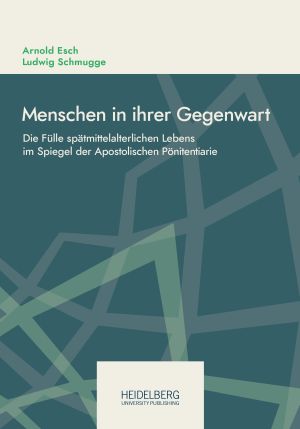How to Cite
License (Chapter)

This work is licensed under a Creative Commons Attribution-ShareAlike 4.0 International License.
Identifiers (Book)
Published
Eheprozesse vor der römischen Pönitentiarie*
Abstract In the Penitentiary’s supplications there is often talk of requests for clemency in matrimonial matters and thus connected to trials concerning marriages. A statistical analysis for the pontificates of Callixtus III to Pius II shows that in the papal administration the Penitentiary was regarded as the primary office of grace in matrimonial matters. The 6,387 marital dispensations recorded here from the years 1455 to 1500 account for only about 5 % of all the marital court cases conducted at the German ecclesiastical courts. The supplications registered in Rome are egodocuments and at the same time testimonies of „legal realgeschichte“ (legal actual history). By happy coincidence of survival, it was possible to trace the prehistory of a supplication in the protocol booklet of the matrimonial judge Johann Hechinger from St. Gallen, who was commissioned by the head of the Constance ecclesiastical court. The „use of justice“ (Martin Dinges) was exercised by all layers of the population, from maids to high nobility. In 55 % of cases there is a blood relationship, in 30 % a relationship through marriage and in 15 % a marriage barrier due to guardianship.






